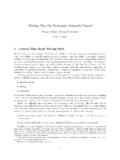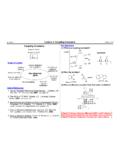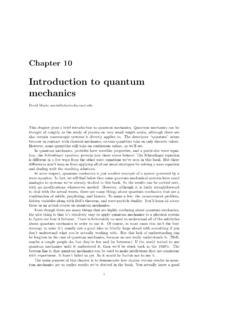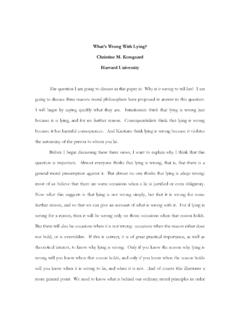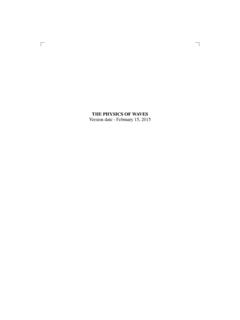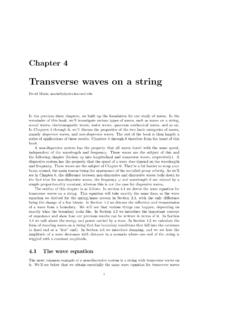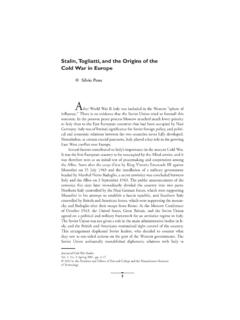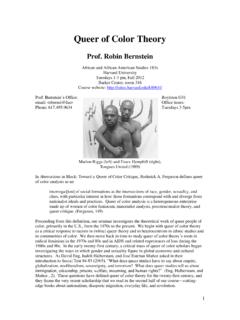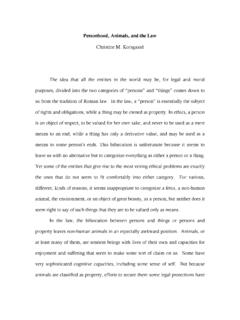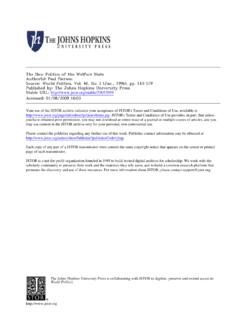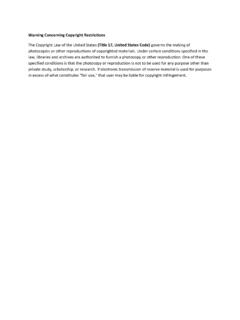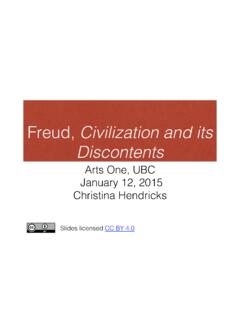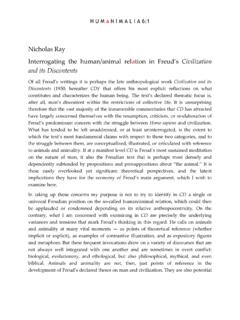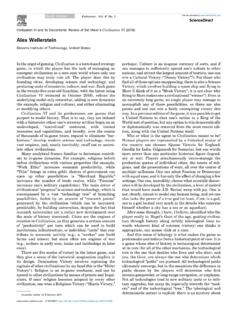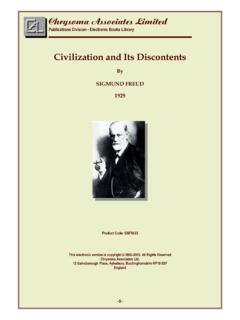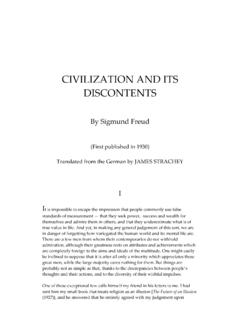Transcription of 1 Civilization and Its Discontents - HUIT Sites Hosting
1 1 civilization and its discontents Egon Schiehle, Cardinal and Nun, 19 1 2. And the end [telos] is the chief thing of all. Aristotle, Poetics, THE COLLISION oftwo motive forces powers the plot of Memure forMemure. On the one hand is the urge to reproduce our own kind, no matter how; on the other is the urge to set limits on how we reproduce or to arrest reproduction altogether. In no other work that I know are these issues so extended to their logical, dramaturgical, and anthropological limits. The Natural Motivation to Reproduce The world must be peopled.
2 ADO The importance of the motive to reproduce our own kind is sug- gested by the high regard in which thinkers of the Reformation and earlier held the divine precept "Be fruitful, and multiply" (Gen. g : I, g : 7).' But in Memure for Memure the injunction to increase comes not from God but from nature. Thus the Duke, attempting to convince Angelo to show off his virtues, claims that nature's gifts to man are not made without obligation or intending an obligation. Rather, they are loans in return for which nature demands a profitable return.
3 Nature never lends ( ) The smallest scruple of her excellence But, like a thrifty goddess, she determines Herself the glory of a creditor, Both thanks and use. The Duke's remark is not directly about sexual procreation; the "use" to which he refers is, primarily, the good works Angelo's virtue may generate. Yet here and throughout Memure for Memure-as well as in a tradition extending back to Plato and Aristotle-the product of monetary generation, or use, and the product of sexual generation, or a child, have been compared.
4 (The Greek word tokos, "offspring," Civilization and Its Discontents referred to both.)2 Thus, granting that Nature's loan is life, the Duke's injunction might be paraphrased: For the life nature lends a man, that man is required to repay both the principal and the interest ("use")- that is, both his own life (by his eventual death) and the lives of his pr~geny.~ In Jesus' parable of the talents, a master who leaves money with his servants expects both principal and interest (Matt. 25: 27); the topos of God as banker pervades Christian writings.
5 " In Measure for Measure, we find a comparable natural usury. The injunction to increase, whether attributed to God or to nature, is problematic from a social point of view. In Genesis, for example, God's command to Noah and his family to "be fruitful, and multiply" is not qualified by any rules about how to reproduce; indeed, He is to all intents commanding them to commit incest. For Noah's family after the Flood, as for Adam's family after the Fall, incest was allowable to ensure the survival of the human species.
6 Neither incest nor fornica- tion, by both of which the human species may increase and multiply, were yet infractions of the divine law. They became so only later in biblical hi~tory.~ In Measure for Measure, nature makes the same inexorable deter- mination that we shall reproduce, no matter how. And the modern liberal impulse is to sympathize with such fornicators as Lucio and Juliet or with Lucio's praising (and perhaps false) description of the Duke: "Ere he would have hanged a man for the getting a hundred bastards, he would have paid for the nursing a thousand" ( 13- 15).
7 Such sympathy has some merit from the viewpoint of nature. First, nature as creditor regards all reproduction as good; it does not care whether the "use" that people beget and that it gets is legitimate or illegitimate. Nature loves bastards, or natural sons6 Second, any act of sexual union, including fornication, is part of the natural, purport- edly inexorable, and (we hope) acceptable sequence of events. The liberal Lucio puts the process of getting bastards into this natural perspective: As those that feed grow full, as blossoming time ( ) That from the seedness the bare fallow brings To teeming foison, even so her plenteous womb Expresseth his full tilth and husbandry.
8 Claudio the fornicator argues further that, under some circumstances, from the natural perspective a socially vicious act can be transformed into its opposite: "Nature dispenses with the deed so far / That it be- comes a virtue" ( )-here, the virtue of both making and saving a life. Civilization and Its Discontents But can this attitude toward fornication be the policy of a political order? Understanding whether a political figure such as a duke could treat any and all natural human offspring as good or any and all acts of reproduction as only natural involves understanding the relation- ship between political control and sexual reproduction.
9 The Motivation to Limit or Ban Reproduction "If animate nature can be said to operate under any rules at all," says the contemporary anthropologist Robin Fox, "the basic com- mandment must be simply, 'Go forth and m~ltiply."'~ The Edenic sim- plicity of this injunction is, of course, fictional; the rules human beings follow are, for whatever reason, anything but simple. The contrast be- tween the God of Genesis, who overlooks fornication and incest by the generations of Adam, and the God later in the Pentateuch, who sets out elaborate proscriptions along with penalties for their transgres- sion, echoes the dilemma of Western Civilization -perhaps of civiliza- tion anywhere.
10 Measure for Measure goes a step further. It does not ground in bibli- cal proscriptions or divine commandment the Viennese rule prohibit- ing the way one may "increase and multiply." The play is noticeably silent, for example, about such laws as Deuteronomy 22: 22-25 or Leviticus 20: 10- 16, which define as adulterous, incestuous, or bestial those sexual acts that transgress marital, familial, or species bounda- ries. Instead of relying on the Bible as the ultimate source for rules against fornication, Measure for Measure looks to politics and the tele- ological consequences of fornication for the political order.
